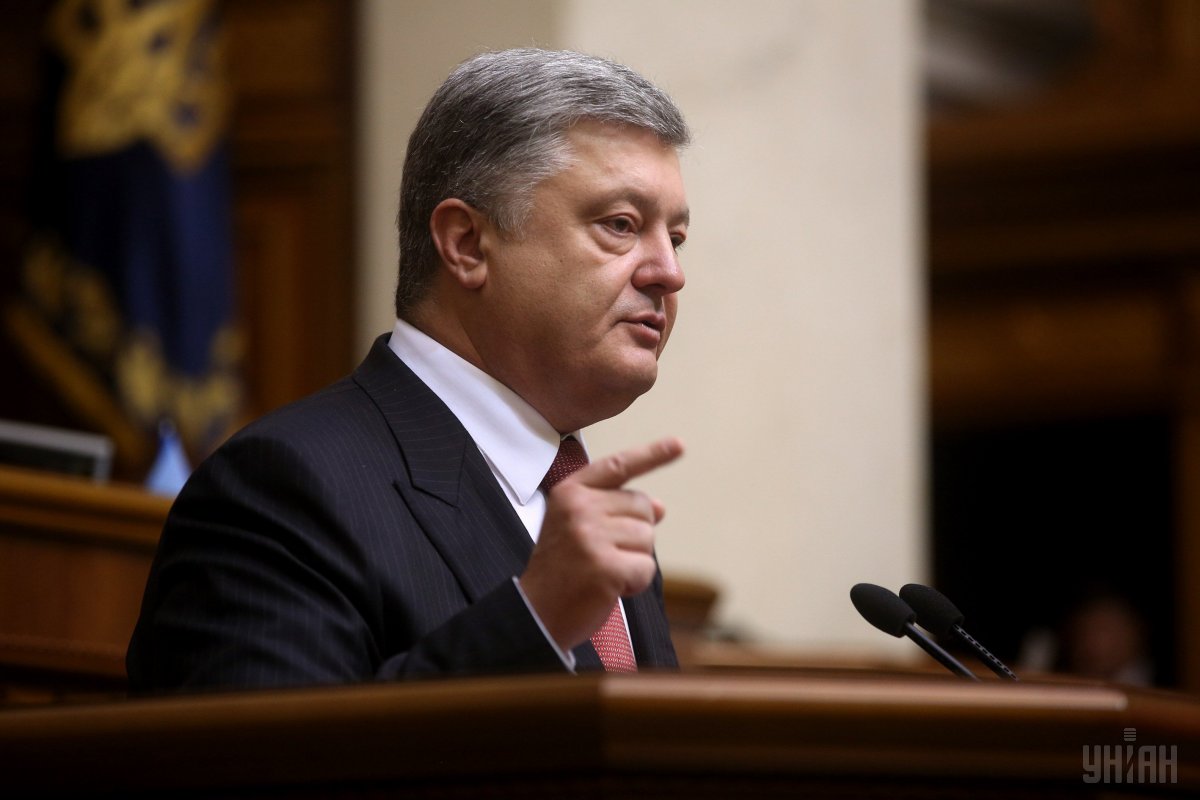
Week’s milestones. Presidential solo, Saakashvili's return and struggle for reforms
Petro Poroshenko tried to outline the priorities of the state in the short term - before the start of the election campaign. Mikheil Saakashvili proved that the goal justifies all means, but nobody canceled the need for "Plan B". The government celebrated the adoption of the law "On Education" and is preparing for new battles around the proposed reforms.
The President managed to mention the Verkhovna Rada in his annual address several times in a positive tone, to invite MPs to strip their successors of immunity, since they have failed to do so for their own convocation, and paid tribute to the Armed Forces. In addition, Poroshenko promised to return the temporarily uncontrolled territories by political and diplomatic means, increase the price of the occupation of Crimea for Russia, and refused to be an advocate for "the friends of the president." The head of state did not miss the opportunity to curtsey to the middle class, noting its role in the formation of the state, hinted with no particular enthusiasm about the need for the emergence of a judicial anti-corruption body, and recalled that only a year remained before the start of the election campaign. This is, frankly, an optimistic assessment, based on further developments.
Poroshenko’s desire to outline in his presidential address the idea of building a successful state at the start of the autumn session of the Verkhovna Rada is understandable. That’s especially so, taking into account the state of affairs in the parliamentary coalition, whose list no one bothers to make public. However, there is no threat of reformatting it, since there are no queues of applicants for the prime minister’s chair. At the same time, the president’s opponents did not let the head of state relax too much in the political struggle, skillfully mobilizing as their supporter Mikheil Saakashvili, for whom the political scandal is perhaps the most favorable habitat.
The return to Ukraine of the former head of the Odesa Regional State Administration turned out to be not only dramatic in its nature, but also able to create some real hype around it. At least, the frequency of mentioning of the word "titushki" in the context of the situation around Krakivets border checkpoint was extremely high. The authorities have lost this information battle, failing to reverse this trend and find adequate speakers ready to comment on the situation with greater effectiveness and passion than Saakashvili himself. The latter had enough energy to move chaotically between different border checkpoints. He was so emotional that not only he eclipsed Yulia Tymoshenko (the last time she was forced to play the second violin was perhaps when she stood next to Viktor Yushchenko in 2004 with well-thought-out consequences), but it also allowed him to literally drag himself into the territory of Ukraine. Later, when he was in Lviv, after a spontaneous rally at Rynok Square, Saakashvili explained his move by the "will of the people", without thinking that his route could eventually go in the opposite direction.
In the person of Mikheil Saakashvili, the Ukrainian oppositionists received weapons of mass destruction, a politician ready to promise anything at all, remaining though a man with extremely vague electoral prospects from the point of view of his very right to participate in the Ukrainian elections. The ability of the ex-president of Georgia to attract media attention and make loud statements hardly makes him a desired supporter for the remaining participants of the opposition consortium who prefer discussions on pre-designated topics. Another problem for Saakashvili is the lack of a quality team, without which claiming victory at the national scale would be naive, to put it mildly. On the contrary, no one will give it to him, rather, on the contrary - others will try to use the popular and sharp-tongued politician for their own purposes.
For the authorities, Saakashvili's return, in addition to the promised reaction of law enforcers, should become a signal about the need to implement concrete reforms. The law "On Education" alone, adopted by Parliament on September 5, and approval of the pension reform in the second reading by the profile parliamentary committee will clearly not be enough. It is necessary to consolidate the deputy corps for the sake of global changes in the country, while the logic of political expediency has not completely eclipsed the ability to make decisions necessary for Ukraine.
Yevgeny Magda

